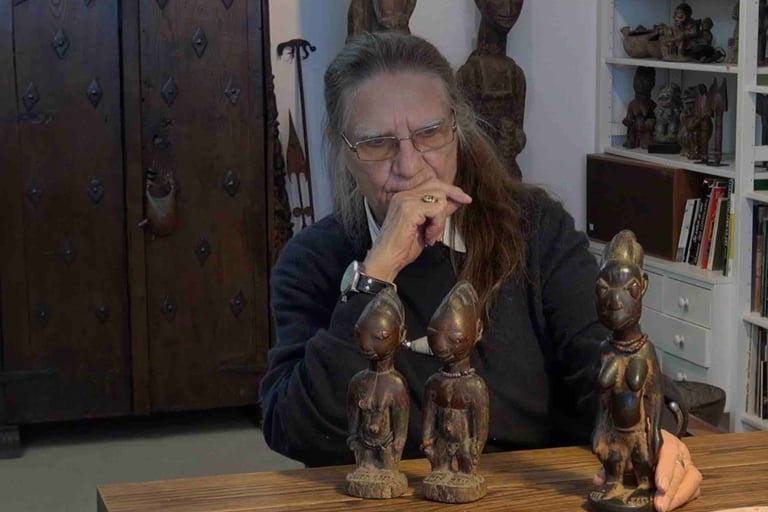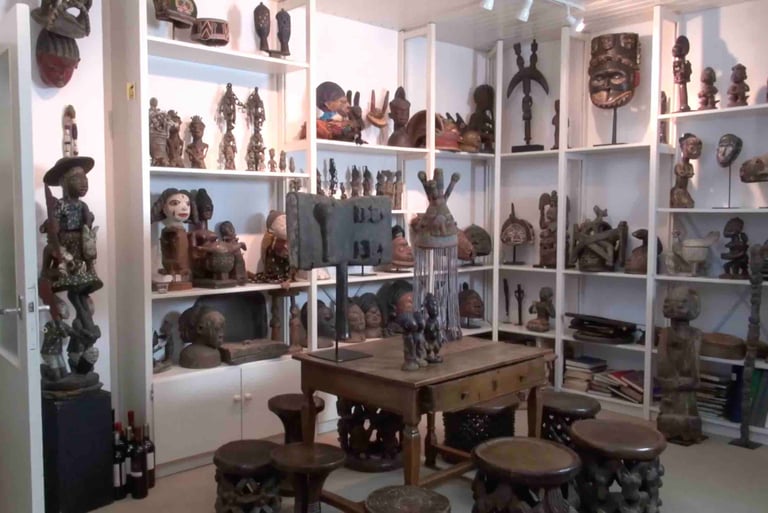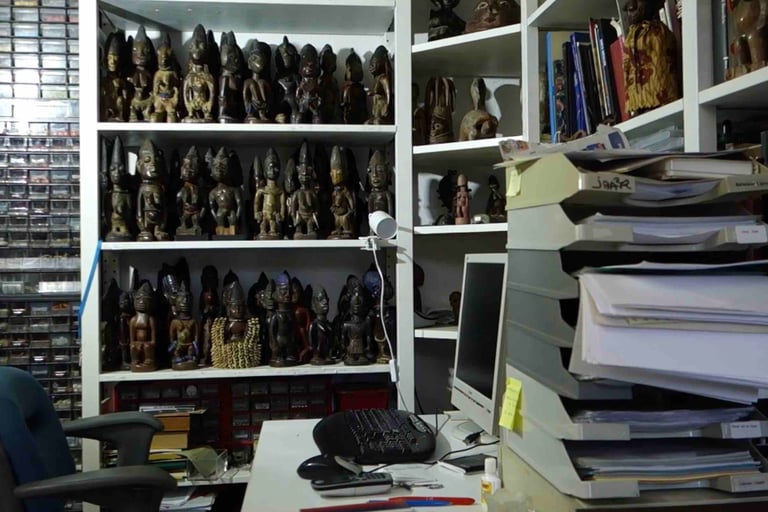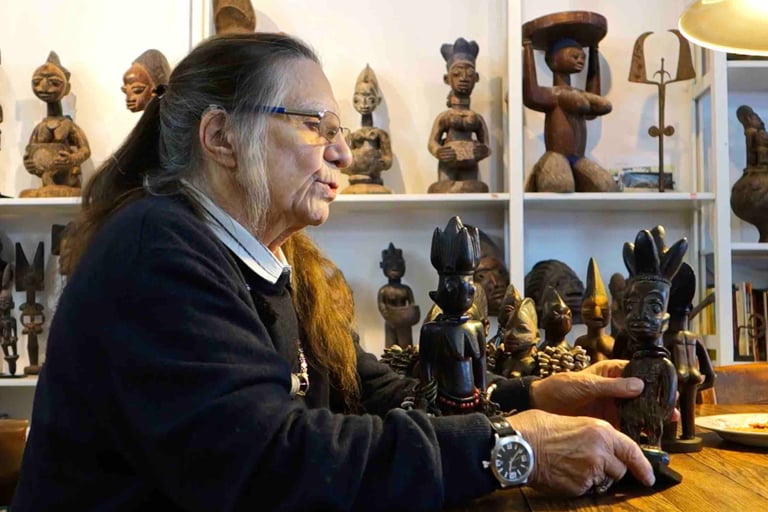Ursula Heijs Voorhuis
1932-2021


Ursula Heijs-Voorhuis, born in 1932, made her mark in the history of non-European art in the Netherlands. Her vast collection of Yoruba art reveals an exceptional journey, driven by an unwavering passion for art and learning.
A pioneer in her field, Ursula was one of the first women in the Netherlands to open a gallery dedicated to non-European art in the early 1970s, at a time when the market was predominantly male-dominated. However, she downplays this fact, preferring to focus on her career as a collector and gallerist. Her determination was fueled by the encouragement of her loved ones, who pushed her to take the leap despite her hesitations. "I knew nothing!" she recalls with amusement, reflecting on her modest beginnings in the art world, where she was unfamiliar with both negotiating and determining the value of artworks.
With family and academic support, notably from the University of Nijmegen where she studied sociology, Ursula embarked on this adventure, balancing teaching with running her gallery. Decades later, grateful for having avoided bankruptcy while building rich and meaningful relationships with many, her home in Berg en Dal, overflowing with art, became a welcoming place for all.


It was alongside her father, an antique collector, that Ursula first discovered the world of art at a young age. However, it was at the Africa Museum in Berg en Dal, then run by missionaries from the Congregation of the Holy Spirit, that she gained her first professional experience in the art world. Volunteering there, she immersed herself in African culture and acquired her first pieces.
Particularly passionate about Nigerian art, especially the works of the Yoruba, Ursula developed a deep connection with this culture. She also fostered a close relationship with Hans A. Witte, an expert on Yoruba societies and a curator at the Africa Museum, with whom she collaborated to identify and document numerous Ibeji twin sculptures. Together, they were able to attribute these works to specific workshops or sculptors, bringing several African artists out of anonymity.


Over the course of six decades, Ursula Heijs-Voorhuis built a remarkable Yoruba collection, comprising more than 4,500 pieces, with a significant portion dedicated to ibeji figurines, symbols of the twin cult in Nigeria. Her interest was not limited to Yoruba sculptures alone; she also assembled an impressive collection of Hohovi twins from the Fon, Togbovi from the Adja, and Venavi from the Ewe, thus consolidating a collection that reflects the breadth and diversity of twin-related practices across West Africa.
This unique collection, both in its size and quality, quickly attracted the attention of museum institutions and European collectors, establishing Ursula Heijs-Voorhuis as a key figure in the study of African tribal art, and more specifically, the twin cult. Her passion for ibeji, in particular, allowed her to develop an intimate connection with these ritual objects, which she regarded not only as works of art but also as spiritual witnesses to a complex cultural tradition deeply rooted in Yoruba social life.
Ursula's passing in 2021, at the age of 89, left an immense void in the field of tribal art. Her tireless dedication to the study and preservation of twin sculptures shaped the views of collectors and researchers around the world. As a leading figure in ibeji research, she helped broaden the understanding of these works beyond their aesthetic value by exploring their religious, symbolic, and anthropological significance. Her legacy remains alive and continues to inspire both specialists and lovers of African art.


The photos illustrating this article are taken from a very beautiful and touching report about Ursula Voorhuis (in Dutch), made by Zbigniew Szendera in 2014, which you can find here. : https://vimeo.com/118421341
